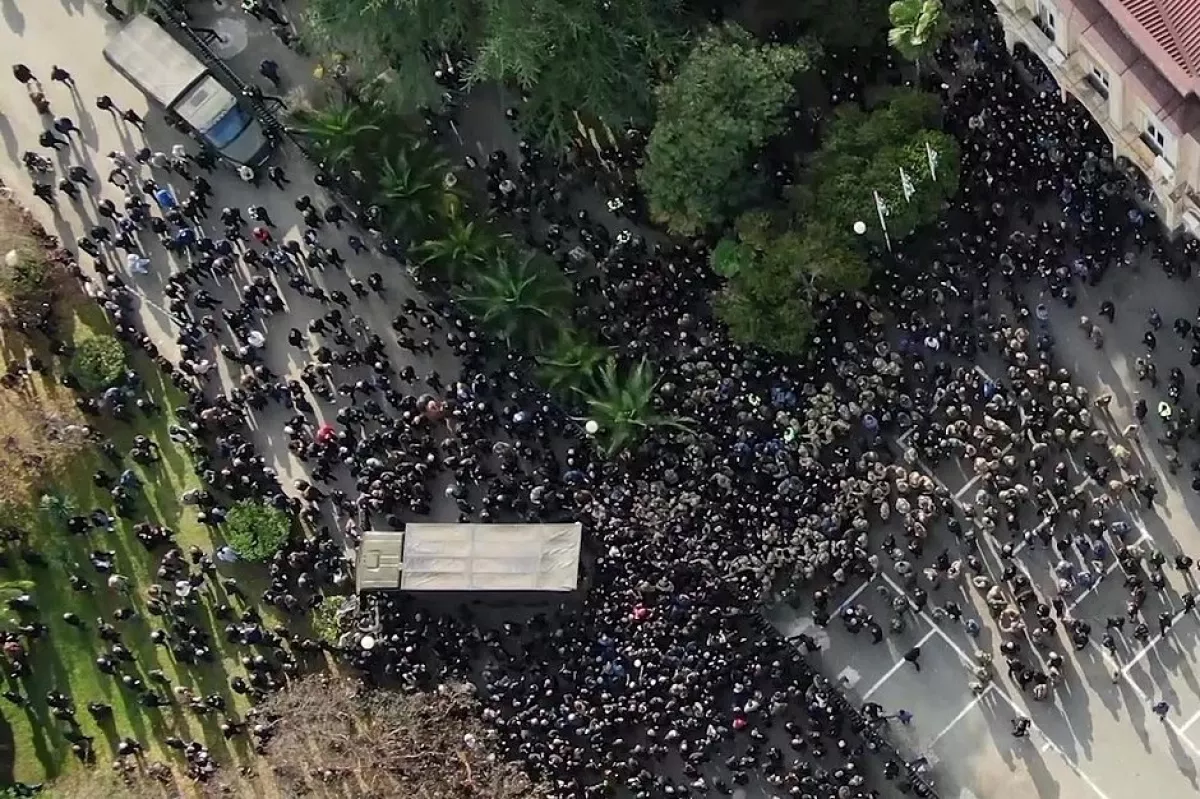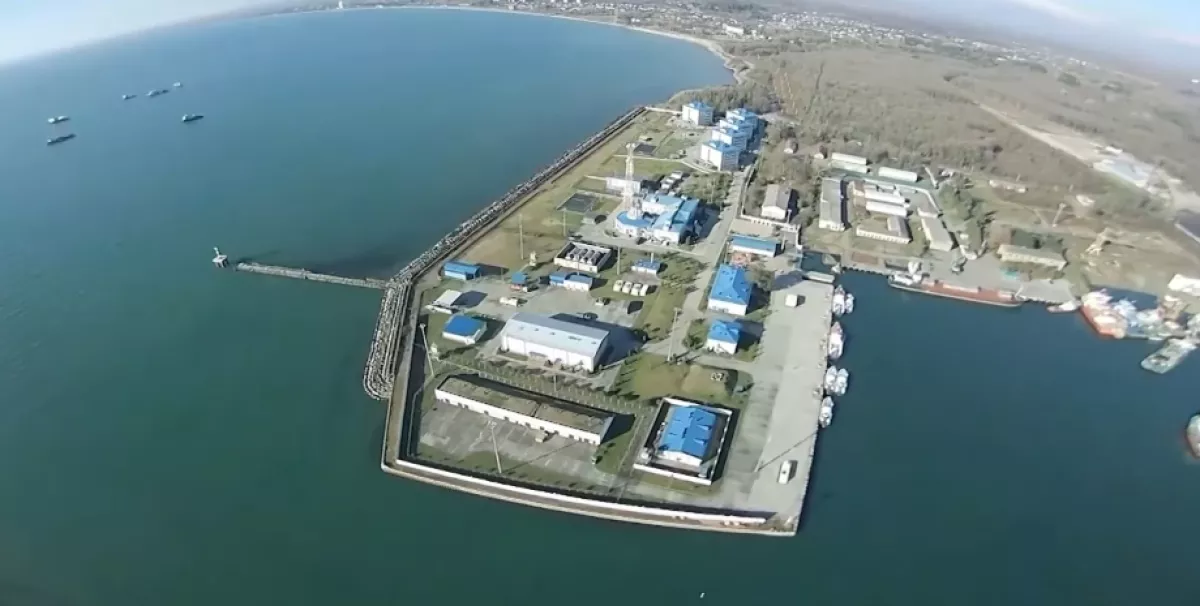"Pre-sale preparation" of Abkhazia From “independence” to potential deal with Georgia
What is happening today in separatist Abkhazia may seem, at first glance, spontaneous, unplanned, and uncontrollable. On November 15, 2024, a coup nearly took place on the separatist territory. The Abkhazian "opposition," protesting the "investment agreement" with the Russian Federation, seized a complex of "government buildings" in Sukhumi. Later that evening, it was reported that the separatist "president," Aslan Bzhania, had agreed to resign.
However, shortly thereafter, it became clear that Bzhania was not resigning and had "relocated" to his native village, Tamishi, where the following day he was holding meetings with the leaders of separatist departments. In response, the opposition threatened to create a "temporary government" if their demands for Bzhania's resignation were not met. On the night of November 18 to 19, the opposing sides reached an agreement on the resignation of "President" Aslan Bzhania and "Prime Minister" Alexander Ankvab, but this did not resolve the issue of internal stability.
Abkhazia found itself in a state of "dual power," or more accurately, powerlessness. It is clear that the occupying Russian Federation will not allow the situation to go beyond certain "limits," and it will not allow anyone to exploit the unrest in Abkhazia to abruptly remove it from Russian control. However, the Kremlin is also clearly in no hurry to intervene in the "internal disputes" of the controlled territory and restore basic order there.

Viewing the situation in Abkhazia through the lens of Russian-Georgian relations, the unrest in the region aligns with the broader concept of its potential return to Georgia. Alternatively, as some Russian ultrapatriots increasingly suggest, this could be seen as the "sale" of Abkhazia. What is unfolding in Abkhazia could be described as "pre-sale preparation." However, in typical commercial transactions, the seller usually tries to "beautify" the product or asset, concealing its flaws.
In the case of Abkhazia, those interested in a deal with Georgia are intentionally portraying the region in the worst possible light—not for the benefit of Georgia, but for the Russian public. The goal is to shape the perception of Abkhazia within Russia as a "burden," something to be relinquished under favourable terms. Simultaneously, Russian investors and businessmen interested in Abkhazia are being led to believe that it would be more profitable to conduct business in the region "through Georgia." Russian enterprises are already thriving in Georgia, and there is potential for these businesses to expand into Abkhazia, not via Moscow, but through Tbilisi.
Certainly, if the authorities of Abkhazia had quickly agreed to the de facto annexation of their "independent" state by Russia, and if the Abkhazian people supported such an annexation, Moscow might have gone along with it. Especially since certain influential forces, notably the Armenian lobby, would likely support this scenario, and plans to turn Abkhazia into a regular Russian region have existed for quite some time. However, in the current geopolitical context, the normalization of relations with Georgia and the opening of transit through Abkhazia, once returned to Georgia, would not only be advantageous for Russia—it could become a matter of vital necessity.
It is important to remember that a significant portion of Russia's strategically important exports passes through Black Sea ports. Prior to the Russo-Ukrainian war, the Kremlin was confident that this export would face no theoretical threats, as the Black Sea Fleet protected Russian ports and communications.
However, the war with Ukraine has exposed the extreme vulnerability of Russia's position in the Black Sea. The "thinned out" Black Sea Fleet has effectively been evacuated from Crimea to Novorossiysk. There are plans to partly relocate this fleet to the Abkhazian port of Ochamchira, but the issue is that the Black Sea Fleet can no longer ensure the security of Russian trade communications in the Black Sea.

For now, a sort of "gentlemen's agreement" has been maintained with Ukraine, effectively extending the "grain deal" brokered by Türkiye. Russia refrains from targeting ships transporting grain and other agricultural products from Ukrainian ports, while in return, Ukrainian drone boats, which harass the Black Sea Fleet, do not attack Russian seaports or vessels engaged in commercial cargo shipments from those ports. However, it is unclear how the situation will evolve. Particularly since the war with Ukraine will, at best, be "frozen" in the near future, but a sustainable peace is still far off, judging by the current state of affairs on the front lines.
Ultimately, Russia may eventually find itself in critical need of rail access to both the Black Sea ports of Georgia and the new deep-water port of Anaklia, which, as is well known, is being built with China's assistance. Such an opportunity would likely not exist if a pro-Western opposition had come to power in Georgia. However, under the measured policy of the ruling Georgian party, Georgian Dream, which seeks to avoid the country’s involvement in military conflicts, these ports are unlikely to be targeted.
Russia also needs a "land route" to Türkiye, which would be easiest to establish through Abkhazia. However, Georgia will never agree to resume transit through Abkhazia if it remains under Russian occupation. Therefore, a deal offering "safe Black Sea trade access for Russia in exchange for Abkhazia" seems quite plausible.
Russian ultra patriots are shocked by the situation in Abkhazia, but it seems that those forces within the Kremlin who are inclined towards agreements with Georgia are generally satisfied with the current state of affairs. Just recently, these "patriots" were adamantly opposed to even the possibility of Abkhazia returning to Georgia, even in the form of a "confederation." Today, however, Russian social media is flooded with suggestions to "return the ungrateful Abkhazia to Georgia," and the ultrapatriots have no counterarguments.
It turns out that the "allies" they urged not to be abandoned or "given to the Georgians" are the very ones toppling the "pro-Russian" government that had agreed to Russia's terms for the de facto "integration" of Abkhazia into Russia. Now, they demand that Russia continue "the banquet," ensuring that Russia not only fully funds and sustains both the separatist regime and the population of Abkhazia, but also does not dare to ask for anything in return.
It is clear that such demands from the Abkhazian opposition are already causing indignation in Russia. Public opinion is shifting from "supporting Abkhazia's so-called 'independence' at any cost" to a "deal with Georgia." Most importantly, the issue of Russia "losing face" by withdrawing its recognition of Abkhazia's so-called "independence" is gradually becoming less significant. The central question now is whether Russia will continue to act against its own national interests, or if it will return Abkhazia to Georgia in line with its broader strategic goals.
Vladimir Tskhvediani, Georgia, for Caliber.Az








